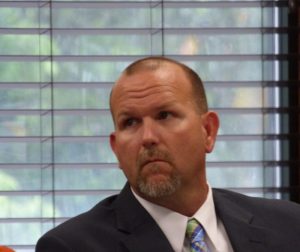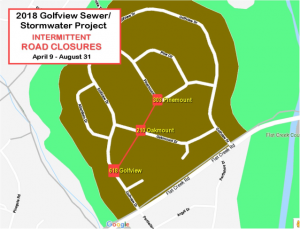Former Peachtree City Water and Sewerage Authority (WASA) Chairman John Dufresne has filed an appeal to the Sept. 22 decision by Superior Court Judge Ben Coker finding that the WASA board did not violate the Georgia Open Records Act and that there is no illegality in the City Council serving as members of the WASA board.
Members of the City Council since 2018 have served as the WASA board of directors.
Dufresne’s filing to the Georgia Appeals Court was made on Oct. 17.
The suit alleged that Mayor Vanessa Fleisch and council members Mike King, Terry Ernst, Phil Prebor and Kevin Madden, while serving as WASA board members, conducted a closed meeting executive session during the Nov. 5, 2018, WASA meeting, and subsequently approved a change to the employees’ health insurance policy that increased employee costs, all in violation of the Georgia Open Meetings Act, Dufresne said last year.
Dufresne alleged that the WASA board violated the Georgia Open Meetings Act by discussing insurance plans for WASA employees in executive session when the subject matter should have been discussed during the public meeting, the court said.
Superior Court Judge Ben Coker on Sept. 22 ruled in favor of the WASA board, finding no violation of the Georgia Open Meetings Act and no illegality in council members serving as members of the WASA board.
The court found that it was proper on the part of the WASA board to discuss the matter in executive session.
Represented by attorney John Mrosek, Dufresne also alleged that City Council members simultaneously serving on the WASA board created a conflict of office, and that the City Council exerts regulatory or supervisory authority over WASA.
Dufresne had argued that the Peachtree City Council’s true intent (by becoming the WASA board) was to punish the former WASA board over disagreements concerning the extension of sewerage services to other municipalities, the court document said.
The court disagreed.
“Having found no illegality in the Peachtree City Council members serving on the PCWASA board, this court grants defendant’s motion for summary judgment and denies plaintiff’s cross motion for summary judgment,” the court said.
The court said each party will be responsible for their own attorney’s fees.
Mrosek last month said his client was contemplating an appeal.













Leave a Comment
You must be logged in to post a comment.